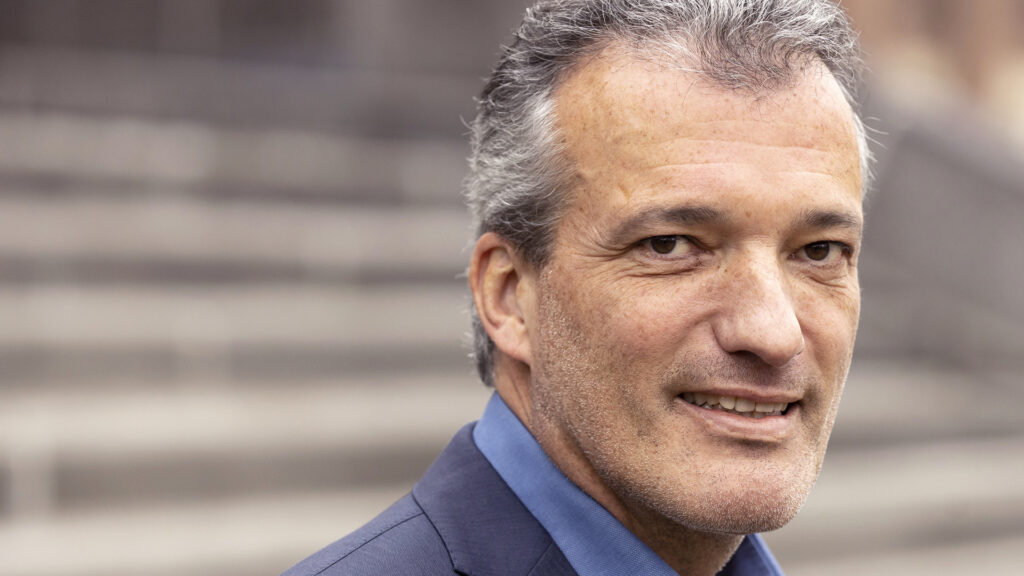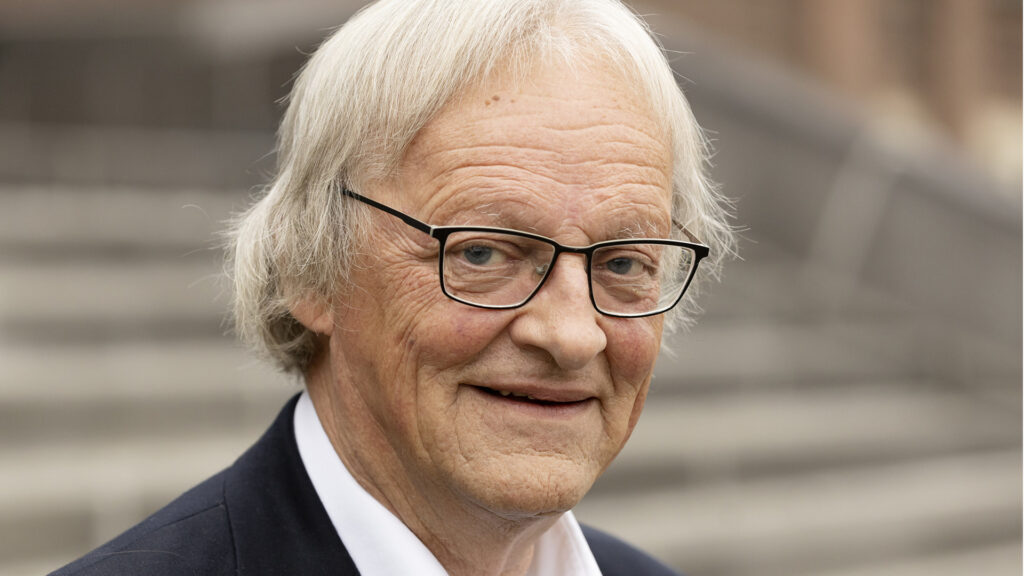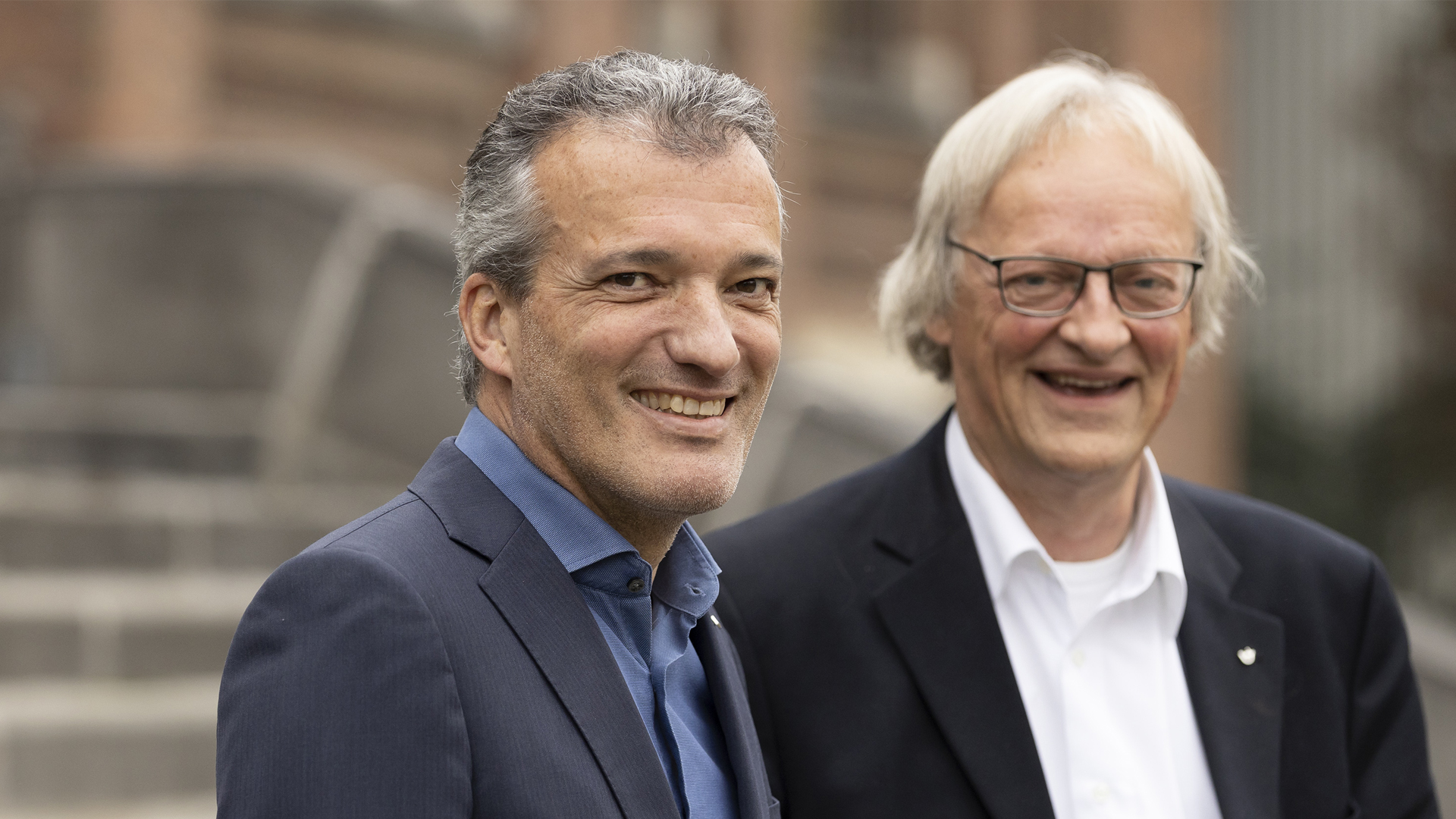After a career of more than forty years at UAntwerp, including 18 years as head of the Finance Department, Martin Decancq is passing on the torch to Werner Jacobs. ‘As CFO (Chief Financial Officer), you will never be loved, but you can be respected’, says Werner.
Werner considers himself lucky that he was able to start before the fourth wave, so he could meet his colleagues face to face. ‘The job of a CFO revolves around contacts, and convincing people. That’s much harder to do remotely’, says Martin, who started his career in 1978 at what was then UFSIA. He successively held the positions of administrative secretary, deputy adviser at the Department of Economic Sciences, and financial director. In 2003, he took the helm of the Finance Department of the newly unified University of Antwerp.
How did you see the university evolve financially over the years?
Martin: ‘A striking change is that today, our freely available resources have diminished. When I became the financial director of UFSIA in the late 1980s, the core funding – public funds that we could spend freely – was as high as 75 per cent of the turnover. Now it is only about half. This is mainly because there is so much more research funding now. While that is a good thing, there is also a downside: research funding is exclusively used for the research in question, while the fixed costs these projects inevitably entail – like ICT, heating, and so on – have to be covered by the core funding. This leaves less and less budget for our basic activities: education, free research and provision of services.’
‘Given my background in IT, I would like to see the university become more data-driven. The data are there, but we do not base our policies on them enough.’
Werner Jabocs – new CFO
‘So to remain financially healthy as a university, we have to skim a portion off every research project we land, and reserve it for indirect costs. But that is a very difficult message to sell. This is where macro-interests collide with micro-interests. In addition, research activities are becoming increasingly capital-intensive, especially due to the increase in expensive equipment. These costs, too, are only partly covered by the research funding. All of this impacts our core funding. That will be one of your big challenges, Werner.’
How can the university balance this out?
Werner: ‘There is only one structural way out of this situation: we need to work even more closely with the business community and financially valorise more research. That is the only way to ensure that our business model – where research and education are equally important pillars – stays healthy in the long run. Otherwise, we would ultimately have to shrink down. That is why it is important, especially for our applied research, to make some hard choices and to focus on a selection of key areas. In our case, those are sustainable chemistry, infectious diseases and smart city.’
Martin: ‘But this also creates a certain tension. The risk is that faculties falling outside those domains will feel left out. Hence the importance of broad core funding.’

Werner, what sectors were you previously active in?
Werner: ‘After working at Belgacom and bpost, I was the finance and ICT manager at De Lijn from 2009 to 2019. I then held the same position at TriFinance for two years before coming to UAntwerp. My experience in these very different companies allows me to look at this organisation with a fresh pair of eyes. Of course, there are also similarities. Both De Lijn and our university have a key societal mission: De Lijn strives for better mobility and more sustainability, while we focus on knowledge as the most important source of prosperity in Flanders. It is the task of the Finance Department to make this possible thanks to sound financial management. Generating cash flow is not our main goal; generating societal impact is.’
You started at our university on 1 September. How was the transition?
Werner: ‘Everything went very smoothly. Martin was very open about the points of concern and sensitivities. I also immediately felt that we shared the same vision on financial management. At my first meeting with the Board of Governors, I did not feel I had to defend any decisions that I did not really support.’
Martin: ‘It was also a relief for me that we were clearly on the same wavelength. It is nice to be able to leave like that.’
‘Today, our freely available resources have diminished. That will be one of your big challenges, Werner.’
Martin Decancq – former CFO
Werner: ‘What struck me the most in those first few weeks was that everything here is decided by consensus, and that the faculties have a great degree of independence. This is very different from what I saw in the corporate world. It does not make it particularly easy for the Finance Department to make its mark.’
Martin: ‘That is right. If you say A, then sure enough, people are going to say B, C and D (laughs). Working in environment that allows for discussions ensures that decisions are widely supported, but it also makes it difficult to react quickly to unexpected changes. It just takes some time to get everyone on the same page.’
What challenges do you see for the future, Werner?
Werner: ‘Given my background in IT, I would like to see the university become more data-driven. The data are there, but we do not base our policies on them enough. We need to connect operational data to financial data. For example, if you want to improve your energy management, you do not just look at the final consumption. You also go and analyse the causes of that consumption. This is where operational systems come into play. We need to shift towards a big data lake, facilitated by a business intelligence centre that makes all that information available to everyone.’

‘I would also like to create more of a ‘process mind’ within our organisation, where we apply processes the same way and transparently across all departments and faculties. When it comes to placing orders, for instance, a uniform approach is cheaper and more efficient, and makes it easier for the Finance Department to support the various services. These two foundations are necessary if we want to move forward with our financial policy.’
One last question: does a CFO need thick skin?
Martin: ‘Absolutely. Especially when cuts need to be made; you can easily become the bogeyman. You are the one who only wants to cut costs and does not care about anything else.’
‘Generating cash flow is not our main goal; generating societal impact is.’
Werner Jacobs – new CFO
Werner: ‘As CFO, you will never be loved, but you can make sure you are respected. You can do that by making decisions in a correct and objective manner, irrespective of the person or the faculty. I think that is the most important characteristic of a CFO.’


